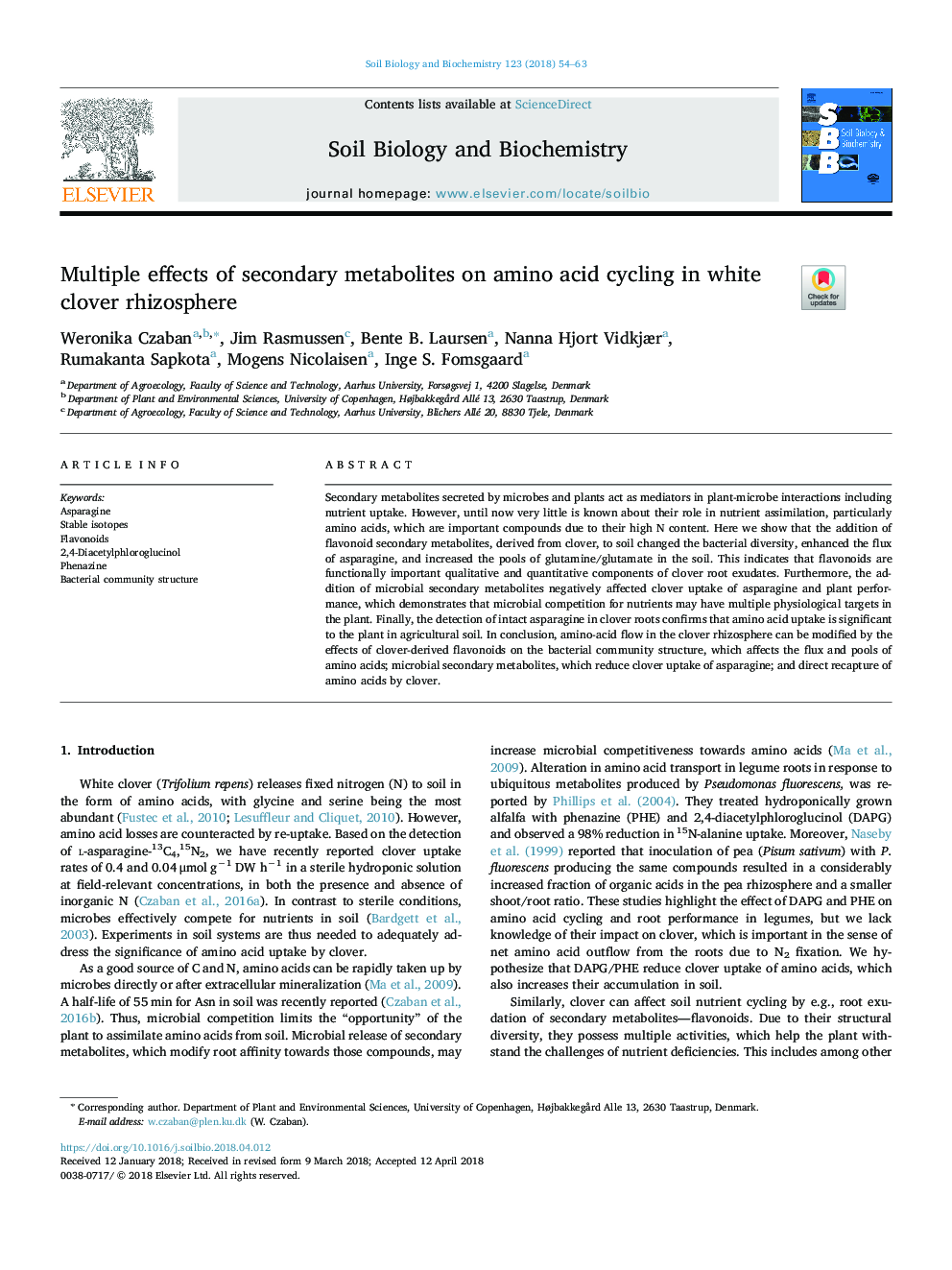| Article ID | Journal | Published Year | Pages | File Type |
|---|---|---|---|---|
| 8362617 | Soil Biology and Biochemistry | 2018 | 10 Pages |
Abstract
Secondary metabolites secreted by microbes and plants act as mediators in plant-microbe interactions including nutrient uptake. However, until now very little is known about their role in nutrient assimilation, particularly amino acids, which are important compounds due to their high N content. Here we show that the addition of flavonoid secondary metabolites, derived from clover, to soil changed the bacterial diversity, enhanced the flux of asparagine, and increased the pools of glutamine/glutamate in the soil. This indicates that flavonoids are functionally important qualitative and quantitative components of clover root exudates. Furthermore, the addition of microbial secondary metabolites negatively affected clover uptake of asparagine and plant performance, which demonstrates that microbial competition for nutrients may have multiple physiological targets in the plant. Finally, the detection of intact asparagine in clover roots confirms that amino acid uptake is significant to the plant in agricultural soil. In conclusion, amino-acid flow in the clover rhizosphere can be modified by the effects of clover-derived flavonoids on the bacterial community structure, which affects the flux and pools of amino acids; microbial secondary metabolites, which reduce clover uptake of asparagine; and direct recapture of amino acids by clover.
Keywords
Related Topics
Life Sciences
Agricultural and Biological Sciences
Soil Science
Authors
Weronika Czaban, Jim Rasmussen, Bente B. Laursen, Nanna Hjort Vidkjær, Rumakanta Sapkota, Mogens Nicolaisen, Inge S. Fomsgaard,
